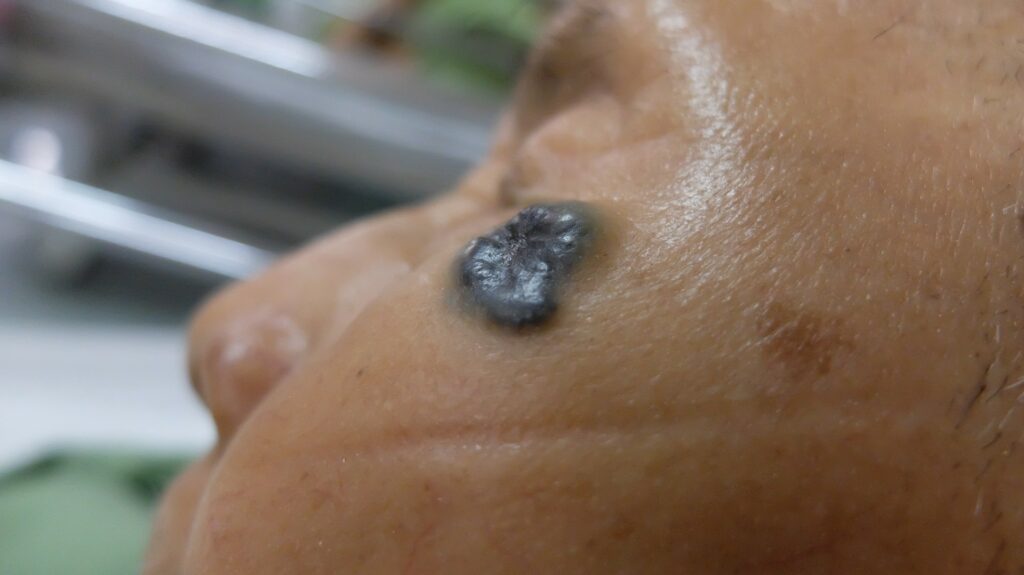Answering the Most Frequently Asked Questions About Mohs Surgery

When you or someone you love is suspicious of a lesion or mole on their skin, you should make an appointment to see a licensed dermatologist as soon as possible. Only a professional trained in skin cancer signs, symptoms, and treatments can diagnose your concern and provide treatment options. Skin cancer affects countless Americans, and is highly treatable when caught early, so do not hesitate to make an appointment if you are contemplating getting a professional dermatologist’s opinion. Mohs surgery is one of the most common treatments for skin cancer, and here we answer some of the most frequently asked questions (FAQs) about the process.
Is Mohs Surgery the Best Skin Cancer Treatment?
The answer to this question is highly dependable on your diagnosis. Lesions and moles need a professional opinion, and when cancer is suspected, your dermatologist may recommend a biopsy. Mohs surgery is typically suggested when the type of skin cancer and location meet the criteria for the procedure so that the skin cancer is treated correctly and thoroughly.
Mosh is the favorite treatment for basal and squamous cell carcinomas. Mohs is the favored treatment because during the process, any growth margins are examined, and healthy tissue remains. Mohs currently has the highest cure rate, reaching 94% for recurring cancers and 99% for new skin cancer treatments.
Highly Effective Skin Cancer Cases Where Patients Prefer Mohs
It is important to remember that your dermatologist can provide an accurate diagnosis and the best treatments for your case. A professional will review all the options and find the one that fits what you want at a price you can afford. Again, many insurance companies cover treatment, so work with your trustworthy dermatology office to find out what is covered.
In some scenarios, Mohs continues to be the preferred method, including skin cancer on the face or in visible areas of the body where saving healthy skin is essential. Mohs is also preferred for removing skin cancer cells on the feet, hands, eyes, and genital areas. Recurring and high-risk cases often seek Mohs surgery treatments due to its accuracy and high success rates. Fast-growing and large lesions may also require Mohs, and those cancers with borders hard to define.
What Are the Advantages of Mohs Surgery?
One of the most significant benefits of using Mohs surgery when diagnosed with skin cancer is that microscopic surgery allows for extreme accuracy during the procedure. In standard procedures, a doctor removes the tissue as a pathologist examines the skin, and rarely do these two professionals work side by side in the same facility. Using the standard incision process has time lapses between each step, leaving more room for miscommunication and error.
Mohs surgery allows more healthy tissue to stay than the standard procedure. Additionally, regarding peace of mind following a procedure, Mohs will address and eliminate any cancer cells during the surgery. When a successful Mohs surgery is complete, patients can rest knowing surrounding skin cancer cells were removed and as much healthy skin remains as possible.
What Are the Disadvantages of Mohs Surgery?
The most significant complaint of patients about Mohs surgery is that the process takes time. Every patient is unique, and the procedure can take several hours, but this is based on the accuracy and care to salvage healthy skin cells. The growth is removed one layer at a time and examined immediately, but each layer can take time because, in some cases, there are many layers to remove to ensure the most successful outcome.
Due to the length of time of some Mohs surgeries, the comfort of sitting still in one spot for an extended time may cause some patients discomfort. Lengthy procedures may require multiple local anesthetic injections to ensure your comfort. Some patients may be offered something to ease their anxiety, but always be honest about any medication allergies up front!
Do not hesitate to call for an appointment when it comes to having a lesion or mole on your skin checked out further. Waiting for any treatment may result in a more invasive removal of skin cancer cells later, leaving a more noticeable scar. Surgical procedures will leave a scar, but because Mohs does save as much healthy skin as possible, the scarring will be significantly less than the standard procedure.
If you live or work in Atlanta and want to get the best skin cancer dermatology services in the area, contact Buckhead Dermatology today for an appointment, or call (404) 816-4000. If nothing else, consulting with a professional will give you peace of mind instead of losing sleep and wondering if what you see is skin cancer. Today, many insurance companies now include an annual skin cancer screening as preventable, so check with your medical coverage and find a reputable dermatologist that accepts insurance for diagnosis and treatment.
